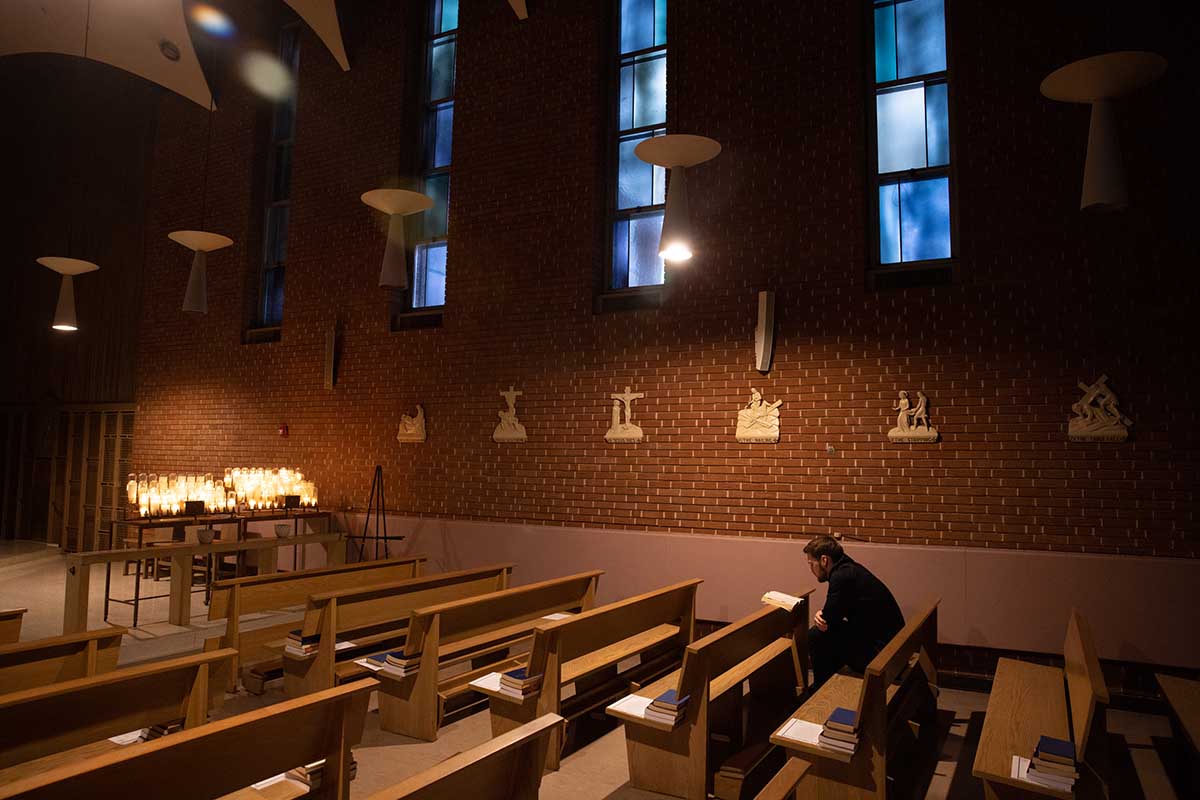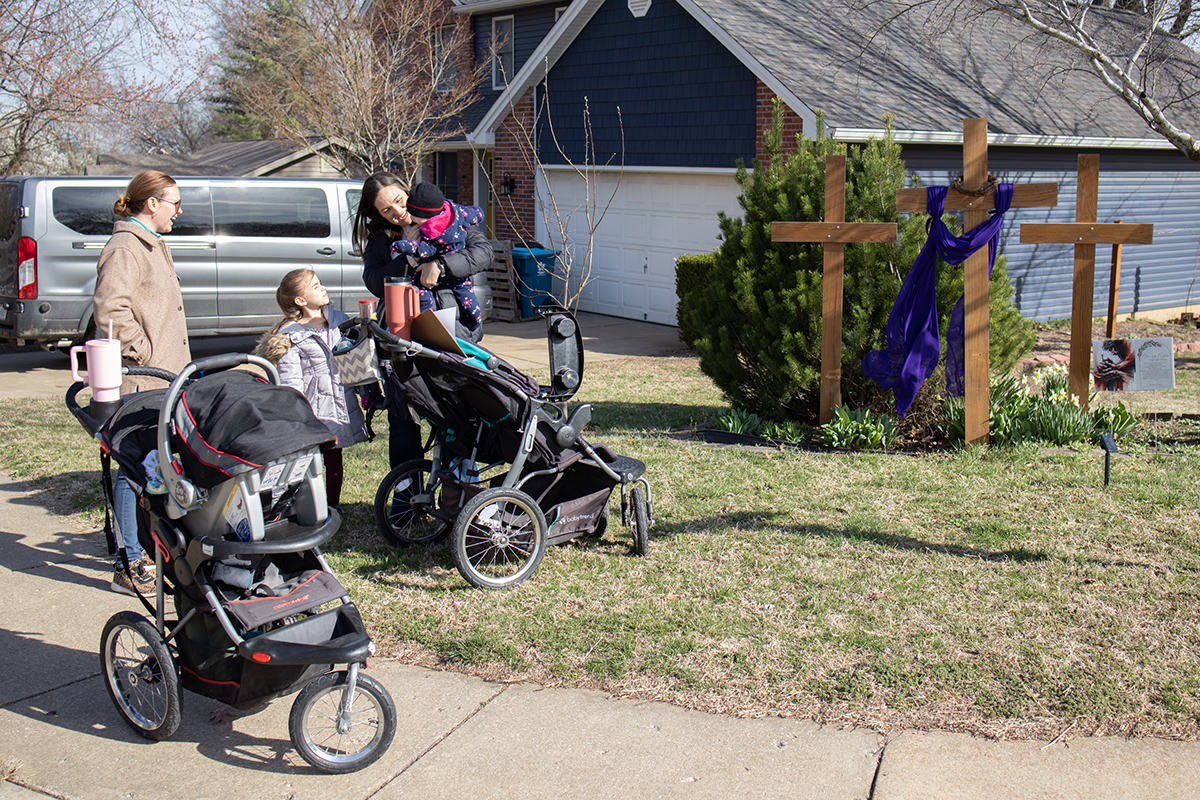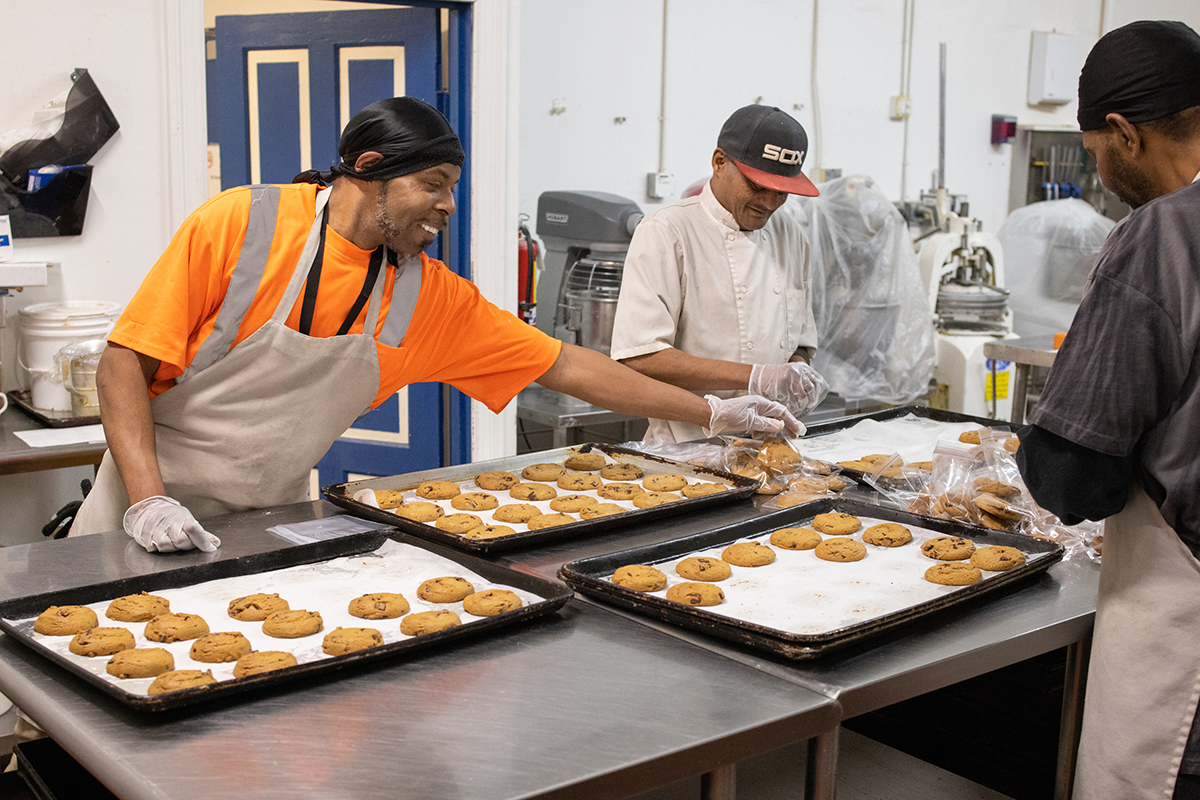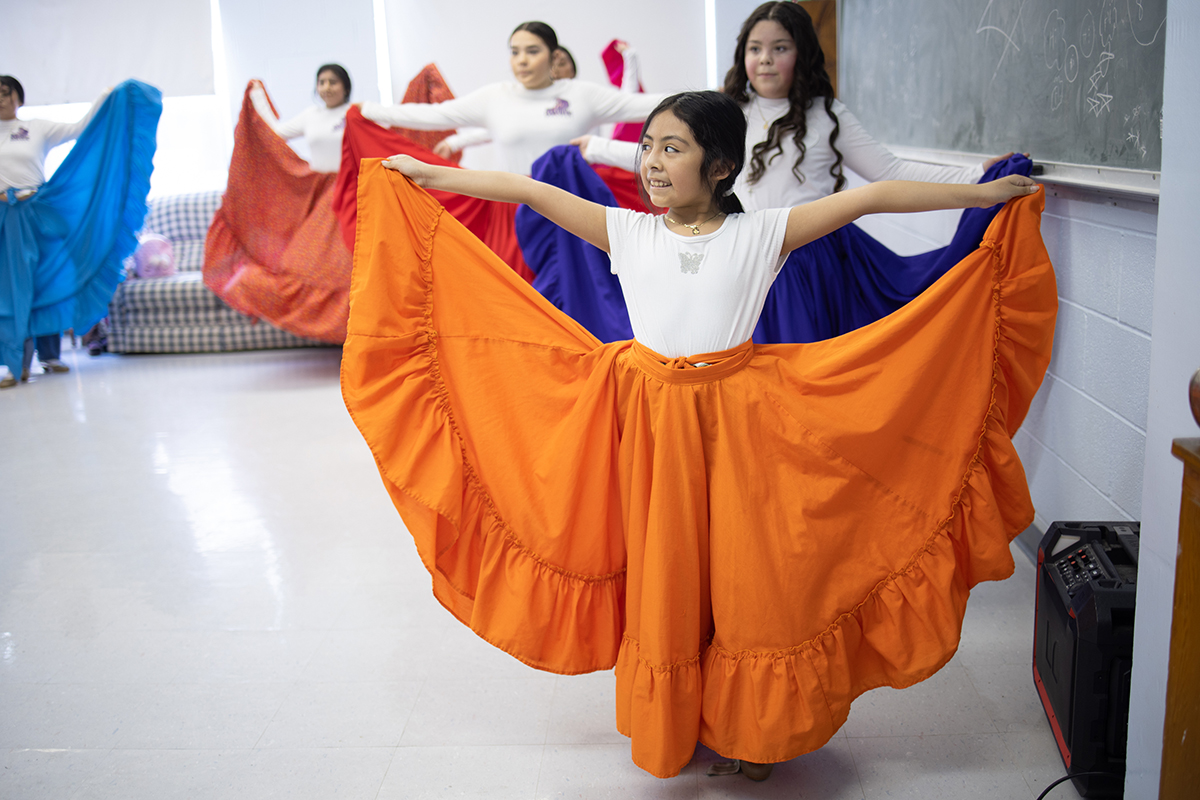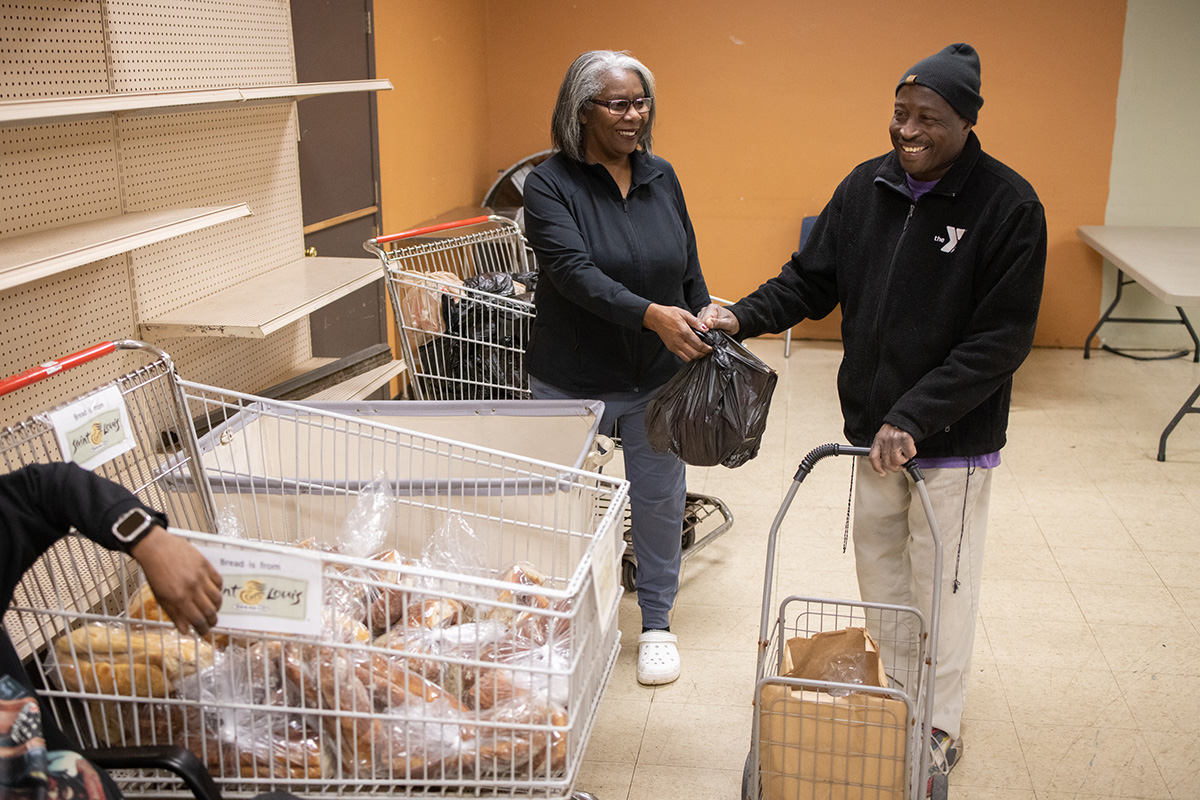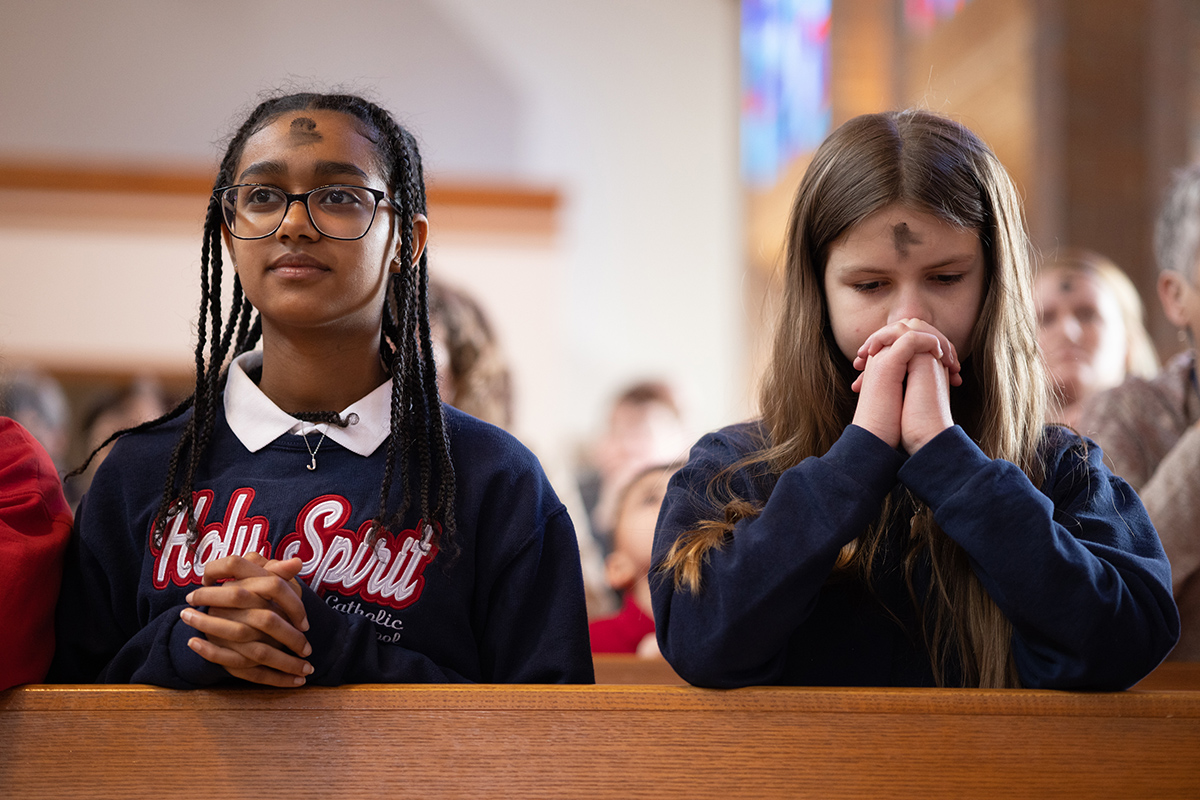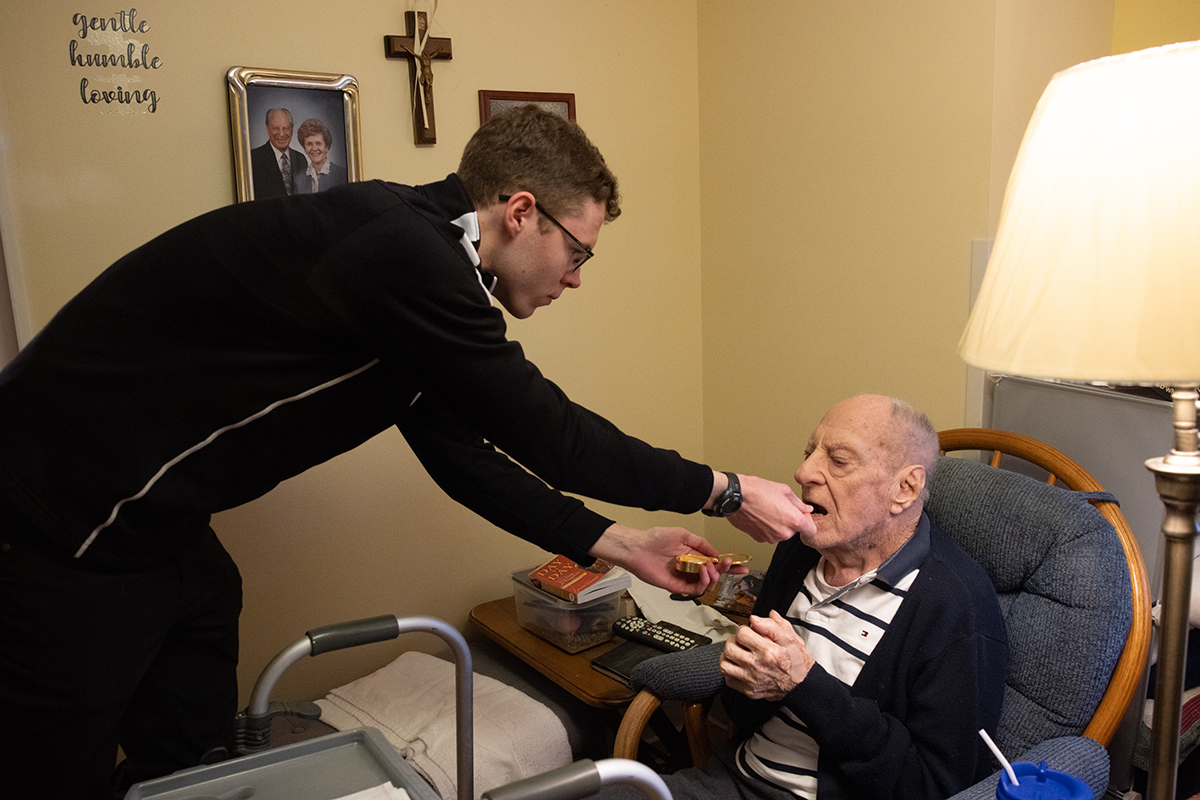Catholics tackle environmental challenges by cultivating love, stewardship of creation

As a stay-at-home mom of two young boys, Angela Wildermuth found a haven in the outdoors.

“That’s where I found solace, comfort, peace. I could just breathe,” she said. “And my kids were happy — I didn’t have to entertain them because they were playing, or we would go on a walk and you see so many things when you’re out walking.”
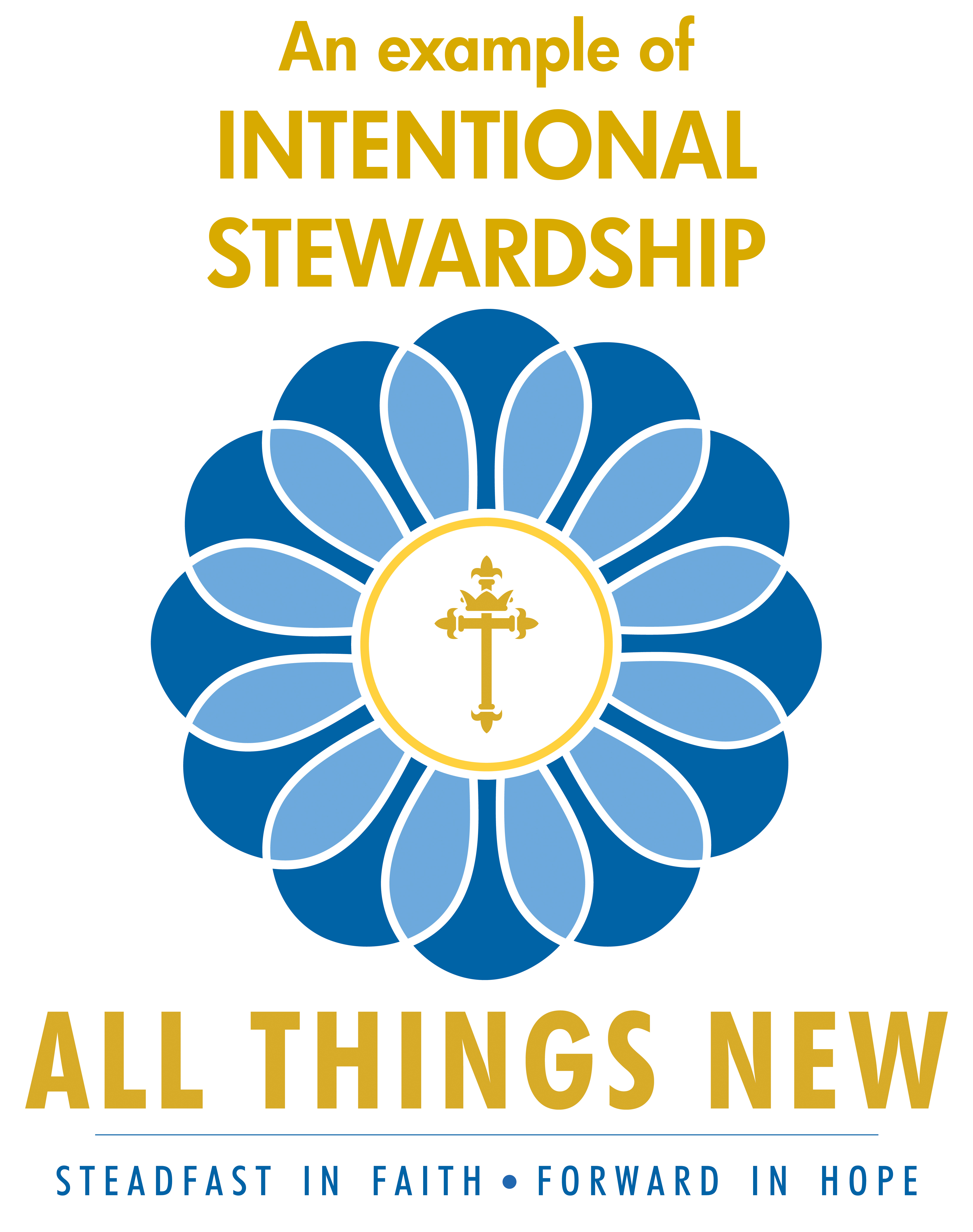
Living in Maplewood at the time, they explored every nook and cranny of the neighborhood parks and paths, stopping to examine rocks, bugs, birds, trees and other plants. The slow-paced, curiosity-driven outings gave Wildermuth quiet space to encounter God through His marvelous creation.
“We (adults) have gotten accustomed to everything around us, but if we are with children and realize how they’re seeing it, then it’s — whoa, just miraculous,” she said.
She decided to start learning as much as she could about the plants and creatures they encountered. Before long, she was inviting friends and their kids on nature walks, and in 2017, she launched Wilderkids Urban Forest School.
Although the program is not specifically Catholic, Wildermuth, who attends St. Mark and St. Margaret of Scotland parishes, is motivated by Catholic social teaching, which holds that we show respect for our Creator through our stewardship of creation. Today, Wilderkids hosts weekly sessions at Forest Park and Tower Grove Park, as well as summer and spring break camps.
“Once I became so connected to nature and play in my city, I began to want to fiercely protect the natural, wilder spaces for myself, my own kids and all kids,” she said. “…My stance toward the environment is fully an extension of my deeply held pro-life convictions. By providing time and support for children to get to know and love the Earth, I’m investing in a culture of future conservationists.”

Nature isn’t just national parks or botanical gardens — it’s where we walk or drive by every day. And you can’t really care for God’s creation unless you know creation yourself, Wildermuth said.
“To know it, you need to see it, touch it, taste it and smell it; feel the wind on your face, splash in the puddles, stomp and squish in mud, smell the flowers and the unpleasant things, taste the plants that are edible in their raw form,” she said. “That’s what young children get in my classes and camps, and that is what I think is critical for all of us to give children — our own children, grandchildren, students and even ourselves — in order to build a thriving culture of life on earth now and in the future.”
Planting seeds
Anyone who attends a fish fry at Holy Redeemer Parish in Webster Groves gets a free lesson in composting.
Over the past several years, parishioner Jamie Hasemeier has led the charge to eliminate as much waste from the events as possible. She credits fish fry organizer the Catholic Women’s League as being “a great partner in turning the fish fry from your standard styrofoam pit of despair to something actually reflective of (Pope Francis’ encyclical) ‘Laudato Si” and our general moral responsibility to take care of each other and the Earth,” she said.
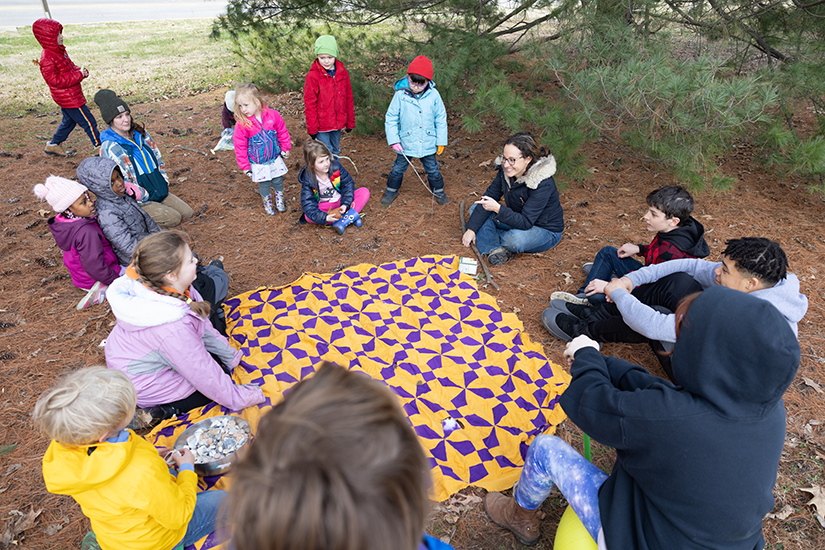
The green fish fry has taken an incremental approach, Hasemeier said: First, they switched from styrofoam to compostable goods, and worked with St. Louis Composting and Total Organics to collect the compost. In subsequent years, they’ve started using bulk condiments to eliminate the hundreds of individual plastic ketchup and tartar sauce packets that would go into the trash.
“Luckily, we’ve created a culture that understands and appreciates that a moment’s use of plastic lasts a lifetime in the landfill or in our environment,” she said.
Hasemeier, a mother of four, also extended her efforts to Holy Redeemer School, helping to start a composting system for school lunches and moderating the “Green Machine” club for fourth- through eighth-graders. The club meets once a month to share knowledge about things like packing less waste or how plastics impact our health and the environment; then, “the kids are the teachers in their own families and communities. They bring all of this knowledge into every space they go,” she said. “It’s — forgive the metaphor — planting seeds.”
Hasemeier is also the chair for the sustainability commission in Webster Groves, which focuses on initiatives like creating safe streets for biking and talking to local businesses about food waste. She recently participated in a lobbying day with the Missouri Coalition for the Environment, advocating for stronger mining regulations that better protect the environment.
To care for creation, it’s important to use our voices to advocate for green practices within our parishes, workplaces and municipalities — and then walk the walk in our own lifestyle choices, she said.
“We all, individually, can make choices in our homes about how we live our lives. And those choices do have consequences when you’re reducing waste. Let’s say everyone in your family, or all your neighbors, decide to reduce the amount of single-use plastics they use, and just the number of items that could be eliminated — that really does make a difference,” she said. “It’s a ripple effect. The things
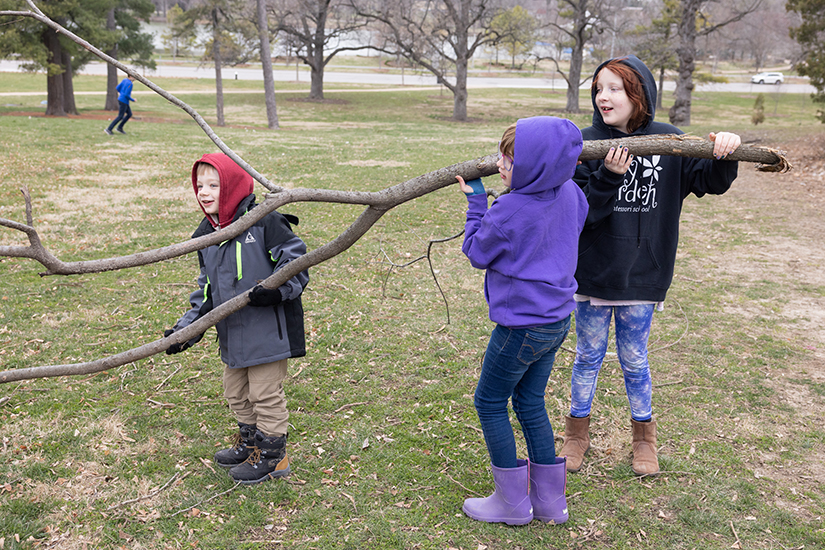
you do as an individual make a difference, but if you think about more people making those changes, the momentum becomes less of a ripple and more of a wave.”
In her own family, they pack waste-free lunches. When they have parties, they use reusable dishes and utensils. She tries to shop locally for food as much as possible. When they pray before meals, they acknowledge the work behind the food that they eat, praying for the farmers and everyone involved in the food distribution process.
“If we consider the earth, created by God, as a gift, then it is our responsibility to care for that gift,” she said. “God is calling us to act in a way that is responsible and shows our commitment and love to the next generation … Creation care is care for one another. It’s care for the poor; it’s care for the future; it’s pro-life.”
‘Everybody’s got to do something’
Across the St. Charles County line, Pam Brown was inspired to make care for creation a priority when “Laudato Si’” was published in 2015. Since then, she’s worked with her parish, St. Cletus, on tangible projects including replacing fluorescent lightbulbs with energy-saving LED ones (with the help of Ameren rebates), putting in water bottle-friendly drinking fountains, switching to reusable plates and silverware in the parish center and for some parish functions, adding more recycling containers with detailed information about what to recycle in the parish hall and more.
Brown is a member of the parish’s peace and justice ministry, which includes care for creation as a priority. During Lent, she’s published environmental Lenten practices in the bulletin each week, like washing your clothes in cold water and hanging them to dry, or switching to cloth napkins at home instead of disposable ones.
In conversations with fellow parishioners, she is reminded that for many, environmental concerns are not always top of mind, she said. “The main thing with caring for God’s creation is education,” Brown said.
It can be easy to get discouraged in working to raise awareness and make positive changes for the environment, Brown said. “But then you stop and think, ‘OK, I can keep doing this, because this is important.’ So I just keep trying. Everybody’s got to do something, even if it is not the easiest thing.”
Loving the earth, for others

Luke Fister estimates that he has about 20 houseplants at home right now.
The Bishop DuBourg High School senior’s green thumb recently led him to a two-week senior service project at Seed St. Louis (formerly Gateway Greening), where he spent time building boxes for raised garden beds, putting together educational and promotional materials, assembling seed packets and more.
He chose Seed St. Louis because he admires the organization’s work to make community gardens more accessible all across the city and help them be as productive and efficient as possible. Care for creation runs in the family; Luke’s mother, Laura Fister, teaches at Bishop DuBourg and started the raised bed garden project at the school, which offers space for students to grow flowers, herbs and vegetables that are then used in Food and Nutrition cooking lessons.
Luke was one of 24 recipients of this year’s Archbishop May Service Award. His Catholic faith naturally leads into caring for creation, he said.
“It’s all about the collective,” he said. “It’s not just your environment, it’s everyone’s environment. And even if you don’t notice it, everything you do to the environment is affecting other people…Every human on earth has inherent dignity that makes them valuable, so we need to respect that. And helping the environment is something we can do in solidarity with all other humans because we’re all on the same earth, you know?”
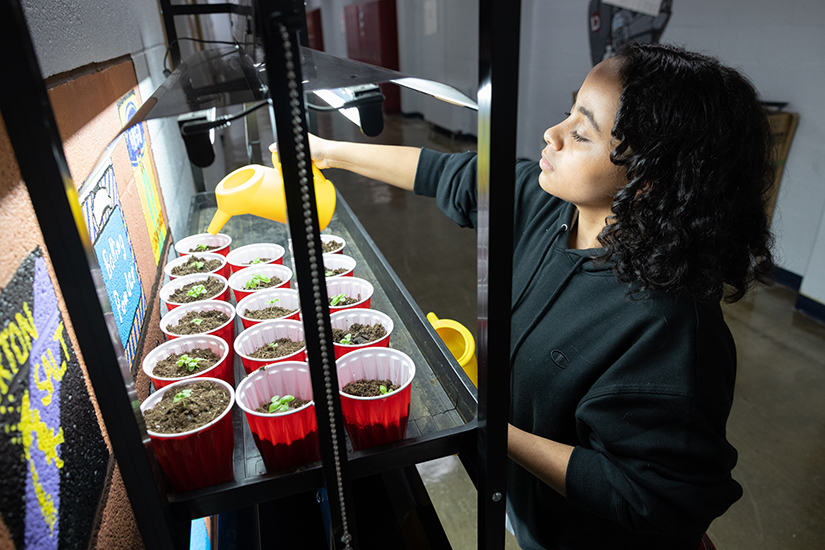
“We all have to help each other out as best we can,” he continued. “And I feel like any Catholic would understand why that’s important, because you need to live not just for yourself, but for others.”
>> Care for God’s Creation
We show our respect for the Creator by our stewardship of creation. Care for the earth is a requirement of the Catholic faith. We are called to protect people and the planet, living our faith in relationship with all of God’s creation. This environmental challenge has fundamental moral and ethical dimensions that cannot be ignored.
To read more about Care for God’s Creation, visit stlreview.com/3zeA0YM
>> Catholic social teaching and Lent
Catholic social teaching is the collection of the Church’s wisdom on building a just society and living lives of holiness amidst the challenges of modern society. Modern Catholic social teaching has been articulated through a tradition of papal, conciliar and episcopal documents, beginning with Pope Leo XIII’s 1891 encyclical “Rerum novarum: On capital and labor.”
The Compendium of the Social Doctrine of the Church explains, “The Church exists and is at work within history. She interacts with the society and culture of her time in order to fulfill her mission of announcing the newness of the Christian message to all people, in the concrete circumstances of their difficulties, struggles and challenges. She does so in such a way that faith enlightens them so that they can understand the truth that ‘true liberation consists in opening oneself to the love of Christ.’ The Church’s social pastoral ministry is the living and concrete expression of the full awareness of her evangelizing mission in the social, economic, cultural and political realities of the world.” (Compendium of the Social Doctrine of the Church, 524)
Catholic social teaching is “an essential part of being Catholic,” said Father Don Henke, associate professor of moral theology at Kenrick-Glennon Seminary and pastor of St. Michael the Archangel Parish in Shrewsbury. But because of the wideness and depth of moral issues that make up social teaching, it can often be misunderstood. Some other aspects of moral theology are founded on “negative principles,” like “thou shalt not steal, thou shalt not kill,” Father Henke explained. “But what makes Catholic social teaching unique — and a lot more difficult — is that it focuses primarily on positive moral principles. It draws us to consider the things that we should do.”
It’s easy to tell if we’ve stolen or killed someone. But we have to wrestle with the question of whether we are truly upholding the dignity of all people, or showing preferential care for the poor, Father Henke said, and people can live out the teachings in a vast number of ways.
The important thing is that we do recognize our duty to participate in the work of Christ in the world, Father Henke said. “As St. Teresa of Avila said, we are Christ’s hands and feet, we are the way Jesus cares for people in the world,” he said.
Engaging in social efforts is a natural path for evangelization, too, when we share our “why” with others, he said.
“It would be wasting good efforts if we’re not saying that we are engaging in and doing these things because of our love for Jesus,” Father Henke said. “We’re modeling our lives after Him, and we’re meant to show our love of Him by how we love our neighbor.”
The reflection and sacrifice that we’re all called to during Lent makes the season an optimal time to consider how we are engaged in and upholding the principles of Catholic social teaching, said Father Henke.
During each week of Lent, the St. Louis Review will feature one of the seven themes of Catholic social teaching.
Feb. 20: Life and Dignity of the Human Person
Feb. 27: Call to Family, Community and Participation
March 6: The Dignity of Work and the Rights of Workers
March 13: Preferential Option for the Poor
March 20: Rights and Responsibilities
March 27: Solidarity
April 3: Care for God’s Creation
To read more about the seven themes of Catholic social teaching, visit stlreview.com/3YtSQWO.
For more resources on Catholic social teaching, visit stlreview.com/3Isancy.
Read all seven installments of this series by visiting stlreview.com/3xnateX
As a stay-at-home mom of two young boys, Angela Wildermuth found a haven in the outdoors. From top, Duncan Hagens, Willem Sichling, Marcus McDonough and Hans Deronne climbed a tree … Catholics tackle environmental challenges by cultivating love, stewardship of creation
Subscribe to Read All St. Louis Review Stories
All readers receive 5 stories to read free per month. After that, readers will need to be logged in.
If you are currently receive the St. Louis Review at your home or office, please send your name and address (and subscriber id if you know it) to subscriptions@stlouisreview.com to get your login information.
If you are not currently a subscriber to the St. Louis Review, please contact subscriptions@stlouisreview.com for information on how to subscribe.

